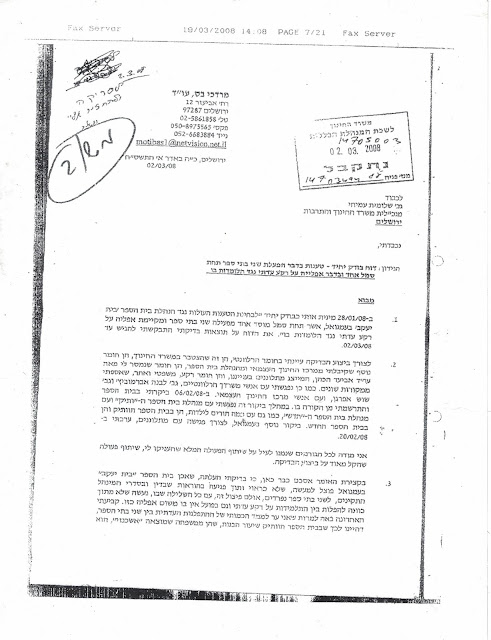Who is listening to the school nurse?
School nurses used to perform height and weight measurements in the following grades: 1,3,5,7.
Since about 2005, height and weight is only performed in grades 1 and 7.
By the time the child is in the 7th grade, if there is a growth problem, it can be too late to fix. In Israel there is often a six month wait to see an endocrinologist.
---
In Japan, management meets with the workers, hears their feedback, and makes adjustments accordingly.
That boosts productivity and morale.
Where is the feedback mechanism for the community nurse in Israel?
We are learning about communication and building trust with patients in my rehabilitation nursing course. This means ensuring that patients fully understand instructions, and feel a sense of autonomy and partnership with clinicians. Gone are the days when patients expect to follow orders and not bother doctors and nurses with questions. This comes from the fruition of generations X, Y, and Z, who held by the concept of what they have rights to and are entitled to.
You "put the patient in the center".
Well that is the theory.
But what really happens, outside of the ivory tower of the classroom, in which educators take theories from western models and present them here in Israel?
When a psychologist spoke about "reflective listening", that is, reflecting back what the patient just said, one nurse responded, "I would want to punch someone who repeats what I said. What, they didn't understand?"
Theories that work in the west, I mean really the west, like the USA, the UK, may not hold up all that well in Israel.
And how many managements grant the time it takes to ensure patient education? When each doctor has 10 minutes for a visit, the message really is - "get the patient in and out as fast as you can."
When school nurses are told, "the parents signed the health declaration and that includes vaccines. You send them a vaccine notice (at times six months later) and you vaccinate. Do not call them to ask what vaccine they want. If the parents are angry that their child received a vaccine that the parents did not intend, they cannot sue you."
In sum, "don't worry they cannot sue you."
Is that all that nurses should care about? Not getting sued?
But there are two vaccines in second and eighth grades, given on the same day.
Two vaccines given on the same day can mean confusion and the need for clarification.
Nurses are constantly hearing from parents that when they signed the health declaration, they did not really intend agreement to the flu vaccine, nor to the papiloma in the eighth grade.
In the field, we know that we need to clarify this. The policy of a signature on the health declaration is enough to vaccinate has been in place for about eight years, since about 2016. Still, after all this time, parents do not relate to this as a final agreement for all vaccines, on vaccine day, which is months later.
It used to be that for a parent to agree to any vaccine, they had to send both the health declaration and the vaccine record - pinkas chisunim. That was their statement of consent.
The policy that the health declaration is sufficient to provide consent, in addition to one notice about two weeks before vaccine day, puts tremendous stress on both nurse, parents, and school children.
To hear from management, "parents will learn their lesson and pay better attention to the health declaration, who cares if they yell at you they cannot sue you" reflects a very very very unfortunate point of view.
How many nurses want to anger parents and lose their trust?
I have not met one yet.



Comments
Post a Comment